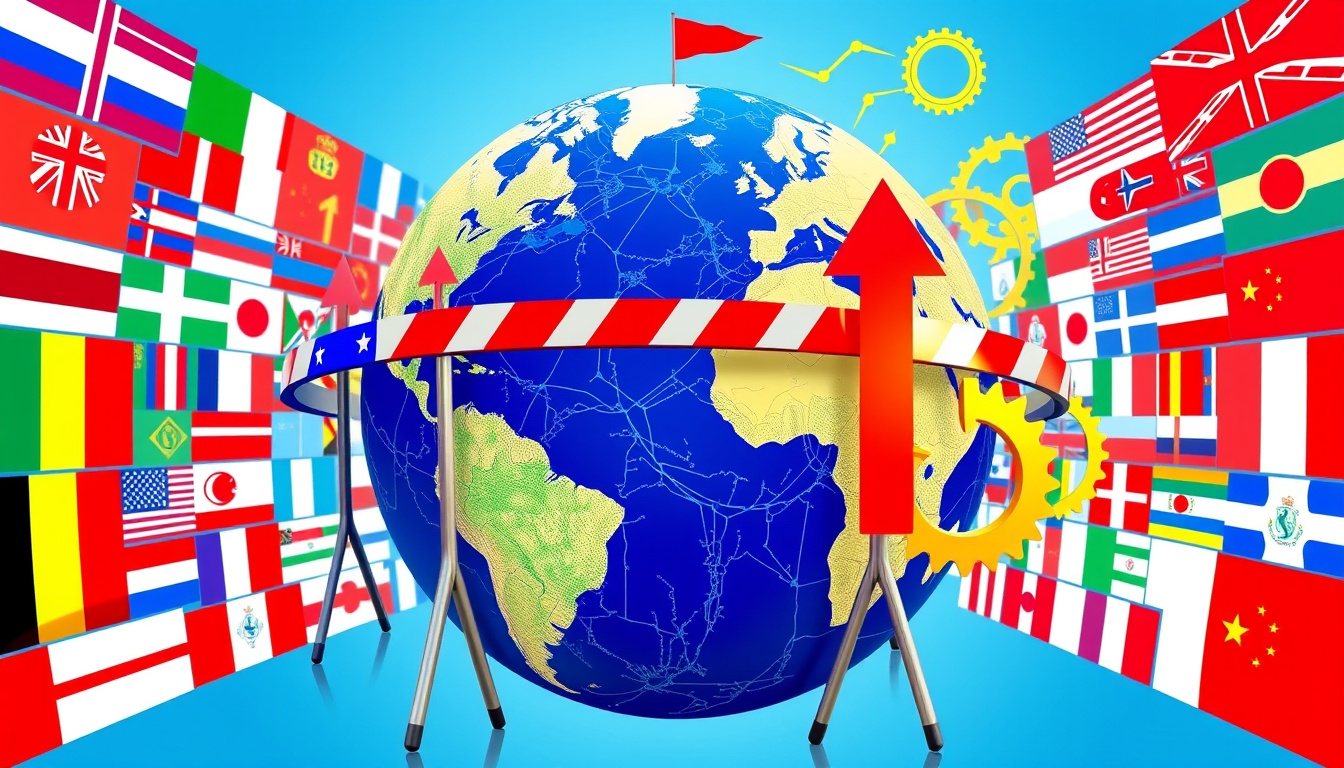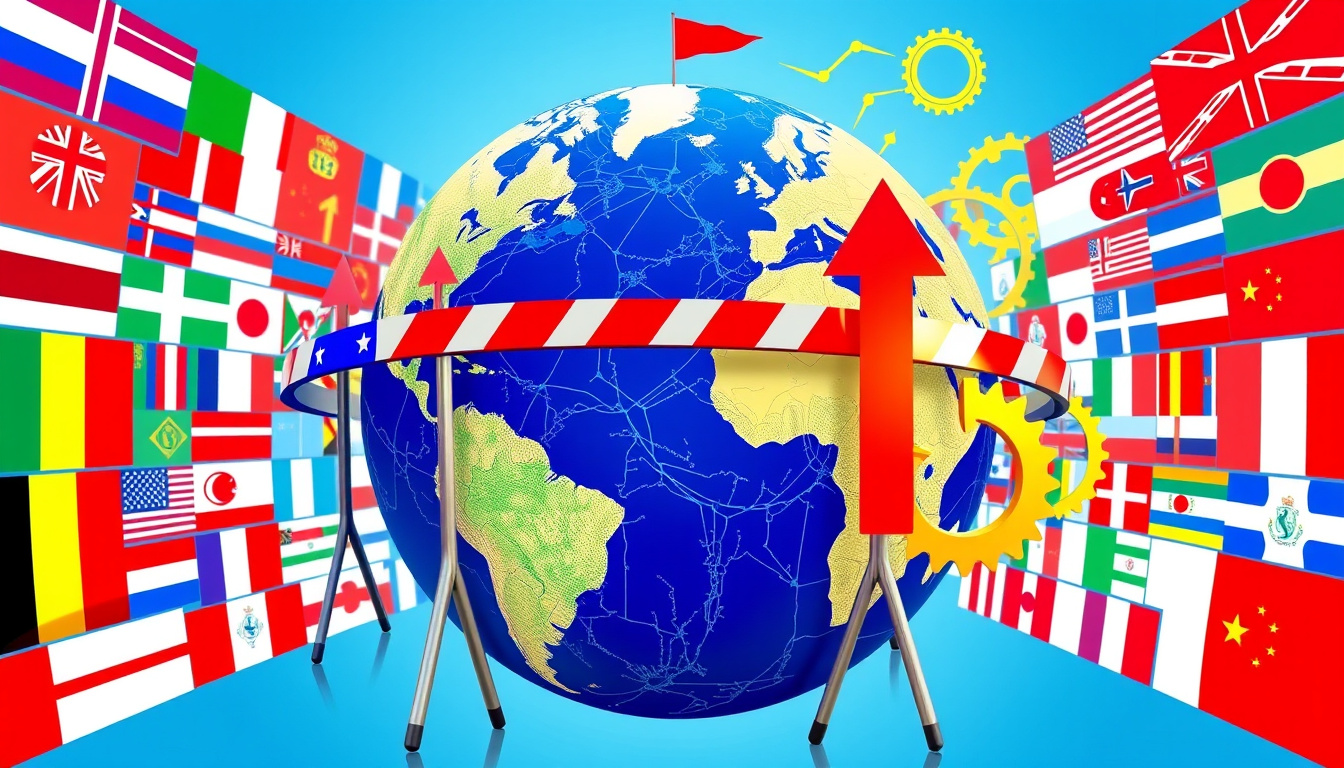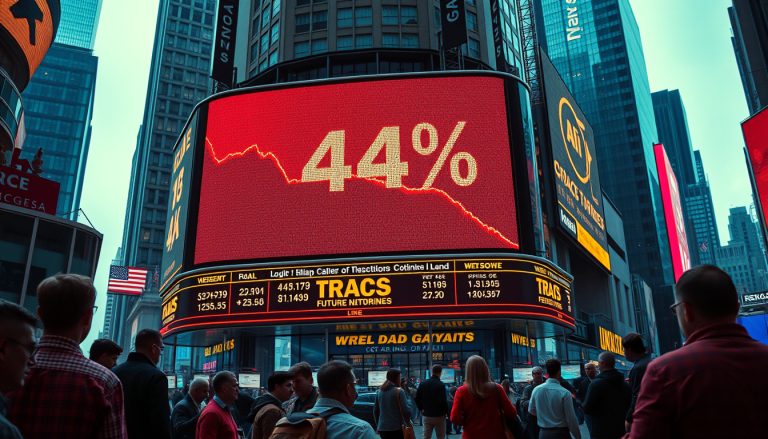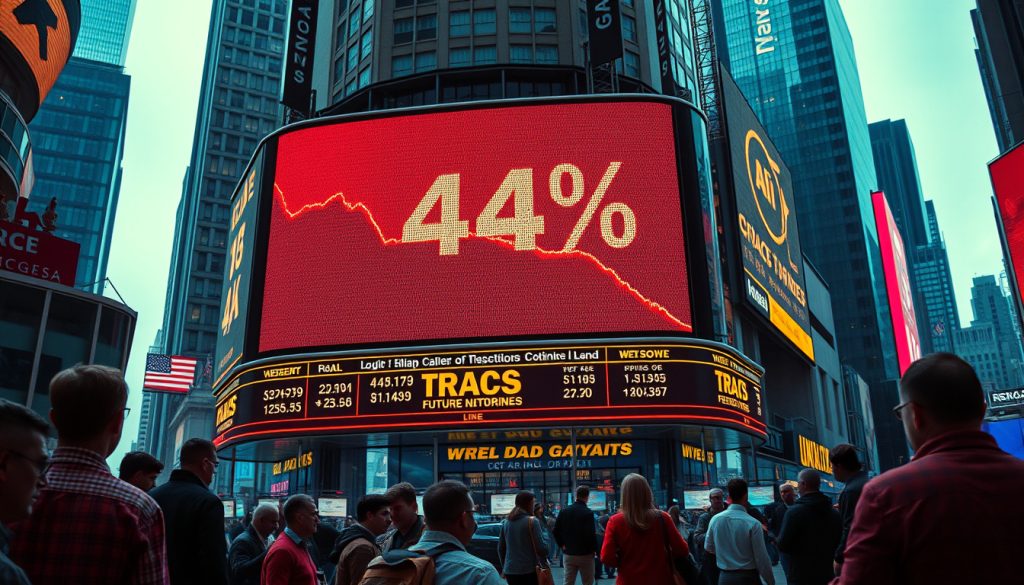In a surprising twist in global economic policy, President Donald Trump’s administration has declared a temporary pause on most country-specific tariffs for a period of 90 days.
This strategic move comes as trade tensions continue to rise, particularly with China, where tariffs have reached alarming levels.
With the U.S.
set to increase tariffs on Chinese imports to a staggering 125%, the announcement has significant implications for both the U.S.
economy and global trade dynamics.
In recent months, over 75 countries expressed interest in engaging in trade negotiations with the U.S., with key players like Japan, Vietnam, South Korea, and India stepping forward.
The pause on tariffs, however, leaves many questions unanswered, particularly concerning existing tariffs on Mexico and Canada under the USMCA trade agreement.
As the economic landscape evolves, experts, policymakers, and business leaders alike are closely monitoring how these changes will influence the pharmaceutical industry and beyond.
With recent fluctuations in drug company shares linked to tariff discussions, the stakes could not be higher.

Key Takeaways
- Trump’s temporary tariff pause may open avenues for new trade negotiations with over 75 countries.
- While a baseline 10% tariff will apply to most countries, sector-specific tariffs could complicate trade relations.
- The ongoing trade tensions, particularly with China, threaten to significantly impact global trade and economic growth.
Impact of Tariff Pause on U.S. Economic Landscape
The recent pause on most country-specific tariffs by the U.S.
government, specifically under the leadership of President Donald Trump, marks a significant turning point in the U.S.
economic landscape, especially for the biopharma industry.
This 90-day suspension comes at a time when international trade relations are increasingly strained, particularly with China, which has seen a staggering increase in tariffs on their imports to the U.S., rising by 125%.
The announcement follows a surge of interest from over 75 countries looking to negotiate trade terms with the U.S., with Japan, Vietnam, South Korea, and India among the key players expected to engage in discussions.
Treasury Secretary Scott Bessent has indicated that while there will be a baseline 10% tariff on other nations, certain sector-specific tariffs will continue, adding complexity to the trade environment.
For the biopharmaceutical sector, which was directly impacted by previous discussions of tariffs on pharmaceuticals, the recent pause has combined effects: it initially led to a slump in drug company stocks, which suddenly rallied after the tariff suspension was announced.
In light of escalating tensions, particularly with the earlier implemented tariff hikes raising rates to 104%, the stakes are high.
As China retaliates with its own tariffs, hitting 84%, the global ramifications of this trade conflict cannot be understated.
The World Trade Organization warns that if the trade conflict escalates further, merchandise trade between the U.S.
and China could decline by up to 80%, with dire consequences for global economic stability and projections of a 7% drop in global GDP.
This evolving scenario highlights the intricate interplay between trade policy and economic performance, making it crucial for stakeholders in the biopharma sector to remain vigilant and adaptable.
Global Trade Dynamics in Light of Trade Negotiations
The uncertainty surrounding tariffs and international trade dynamics is particularly critical for the biopharmaceutical industry, which relies heavily on cross-border supply chains for research, development, and distribution of essential medicines.
The temporary pause on tariffs could provide a much-needed relief period for biopharma companies that previously faced fluctuating costs and market unpredictability.
With key countries like Japan and South Korea poised to engage in negotiations, the potential for favorable trade agreements could further bolster the biopharma sector’s growth prospects.
Moreover, as companies assess the landscape of these trade negotiations, they will likely seek to leverage any opportunities that arise from tariff relief to strengthen their market positions globally.
The relationship between trade policy and economic performance has never been clearer, especially for an industry that not only impacts the health of individuals but also plays a significant role in the broader economy.















